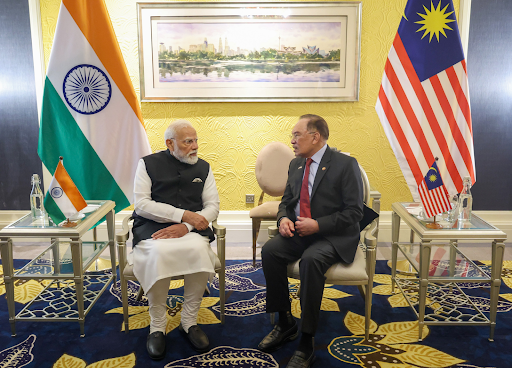




Copyright infringement not intended
Picture Courtesy: https://www.kaohooninternational.com/economics/544865
The Niti Aayog CEO proposed that India should join the Regional Comprehensive Economic Partnership (RCEP).
RCEP |
|
Objectives |
|
India Participated in RCEP but withdrew |
|

Arguments by NITI Aayog CEO
Joining the RCEP will greatly benefit India's micro, small, and medium-sized enterprises (MSMEs), which account for 40% of the country's exports. It would give Indian MSMEs greater market access, allowing them to be more competitive globally.
India has underutilized the "China plus one" strategy, a global trend of diversifying supply chains away from China. Other countries, such as Vietnam, Indonesia, Malaysia, Turkey, and Mexico, have successfully capitalized on this trend by attracting investment and trade, however, India has not fully capitalized on the opportunity, therefore, India should adjust its economic structure to reap the benefit.
India's higher-than-average tariffs lead to trade bottlenecks, limiting its participation in global value chains. 70% of global trade flows through these value chains, and India's current tariff levels make it difficult for the country to access them, thus India needs to adjust its policies such as rationalizing trade barriers (tariff and nontariff) to integrate its economy with the global value chain.
The World Bank in its India Development Update report suggested India to consider rejoining RCEP. According to the report, RCEP membership could benefit India by increasing trade, attracting more investments, and promoting GDP growth.
India's membership in major trade agreements such as RCEP could increase foreign investment in domestic industries, it can improve trade liberalization, and expand global market access for Indian industries. The partnership could also strengthen the economic status of India by allowing it to play a major role in the global supply chain and establish strategic economic alliances.
Must Read Articles:
Source:
|
PRACTICE QUESTION Q.Critically analyze the main concerns behind India’s withdrawal from Regional Comprehensive Economic Partnership (RCEP). (250 Words) |





© 2026 iasgyan. All right reserved